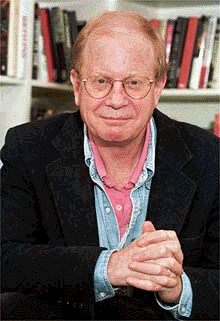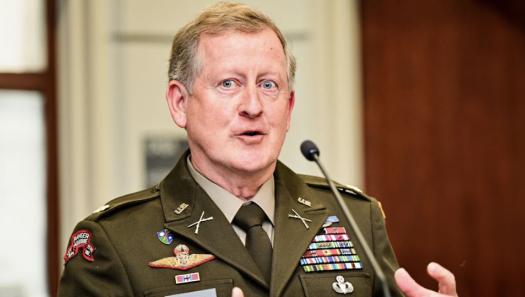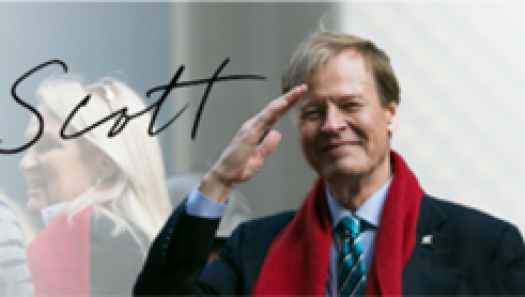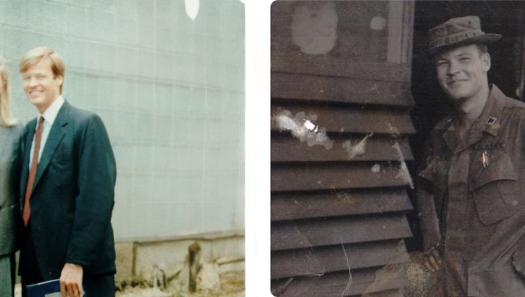Military & Veterans News
Vet News: Prominent Historian Admits Fabricating Vietnam Record
Janny Scott


Joseph J. Ellis, the Pulitzer Prize- winning historian whose latest book, "Founding Brothers: The Revolutionary Generation," has been a national best seller for 26 weeks, admitted yesterday that he had misled his students at Mount Holyoke College into believing that he was an airborne soldier in Vietnam when in fact he never served in Vietnam.
Professor Ellis, a well-known scholar of early American history and a Mount Holyoke professor who teaches a popular course on Vietnam and American culture, had also been accused in an article in yesterday’s editions of The Boston Globe of exaggerating his role in the antiwar and civil rights movements and otherwise embellishing his experiences in the 1960’s. The Globe said these statements were made to students and in interviews.
In a written statement, Professor Ellis, 57, said: "Even in the best of lives, mistakes are made. I deeply regret having let stand and later confirming the assumption that I went to Vietnam. For this and any other distortions about my personal life, I want to apologize to my family, friends, colleagues and students. Beyond that circle, however, I shall have no further comment."
Historians and others said they were stunned by the accusations against Professor Ellis, who won the Pulitzer Prize for history this year for "Founding Brothers" and whose 1997 book, "American Sphinx: The Character of Thomas Jefferson," won the National Book Award for nonfiction that year. Several described Professor Ellis as a gifted historian whose books have been characterized by beautiful writing and what John Demos, a historian at Yale, called "interpretive brilliance."
Many pointed out that neither The Globe report nor any other source had questioned Professor Ellis’s scholarship in his books or other work. But some said that intentional misrepresentations in the classroom violated professional ethics and the canons of teaching.
One historian, Eric Foner, a professor at Columbia University and a former president of the American Historical Association, said of Professor Ellis: "One of the great things about his writing is that he recreates past situations with amazing vividness - a moment in Congress in debate, a confrontation with Hamilton and Burr. Maybe he has become a victim of his own ability to do that."
The article in yesterday’s editions of The Globe, by Walter V. Robinson, accused Professor Ellis of embroidering his lectures in his Vietnam course with what Mr. Robinson called "sometimes detailed recollections of his own Army service in Vietnam" and of telling another Globe reporter last year that he had gone to Vietnam in 1965 as a platoon leader and paratrooper with the 101st Airborne Division, after which he said he had joined the antiwar movement at Yale.
The article stated that military records and interviews with friends of Professor Ellis from the 1960’s indicated that he had spent his three years in the Army teaching history at the United States Military Academy at West Point. The records show, The Globe said, that Professor Ellis spent two months in Fort Gordon, Ga., then joined the history faculty at West Point, where he spent the rest of his service.
The Globe said Professor Ellis for years told his stories mostly to students, but he began to tell them publicly in interviews in recent years as he became more famous. The article stated that Professor Ellis claimed in one interview to have spent time in Saigon on the staff of Gen. William C. Westmoreland, the American commander in Vietnam, and to have later discussed the experience with David Halberstam, who wrote the 1972 book, "The Best and the Brightest."
In an interview yesterday, Mr. Halberstam said: "To the absolute best of my knowledge, I’ve never talked to him in my life about Vietnam. If I’ve met him, I don’t remember it. And certainly about Vietnam, I have absolutely no memory of talking to him about Westmoreland and his staff."
Joanne V. Creighton, the president of Mount Holyoke, described Professor Ellis as "one of the most respected scholars, writers and teachers in the nation" and as a man with "a reputation for great integrity, honesty and honor." Ms. Creighton also said, "We at the college do not know what public interest The Globe is trying to serve through a story of this nature."
Professor Demos, who described Professor Ellis as a friend, called him "one of the most gifted historians of his and my generation." He recalled joining Professor Ellis in a panel discussion at the annual meeting of the American Historical Association last January on the subject of how far historians can or should go beyond documentable facts in their scholarship and writing.
"Joe took a very firm position that, as I remember him saying, `you can’t make it up,’ " Professor Demos said. "And he was very persuasive on that. Now, we’re talking about scholarship. I actually took a somewhat more complicated position. But I think he was very strong and very persuasive on this and I had no doubts about the foundations of his position. That is by way of saying, yes, I have absolute confidence in his scholarship."
Ashbel Green, Professor Ellis’s editor and a vice president at Knopf, who said the charges came as a surprise to him, said Professor Ellis had once considered writing a book about Vietnam. Mr. Green said he did not encourage that idea in part because there had been so many books on Vietnam and in part "because I’ve had experience with authors who go totally out of their territory and don’t do as well."
One historian, David Oshinsky, a professor at Rutgers University, said he had come to believe there might be a particular tendency among people who came of age in the 1960’s to exaggerate or embellish their experiences during that time - as if "there was something so intensely moralistic and divisive about it that you marked your identity by whether you took a stand."
Professor Oshinsky said: "This was essentially our passage to adulthood. It was the way we defined ourselves. Some people actually went to Mississippi - and some people went to Mississippi in their heads."


